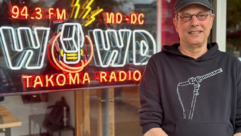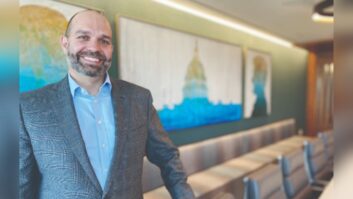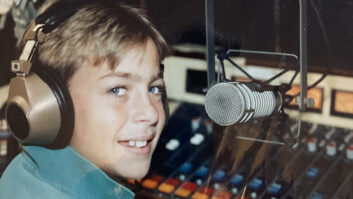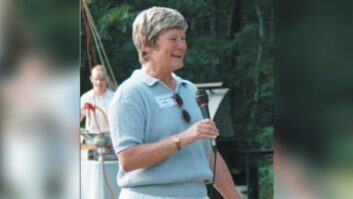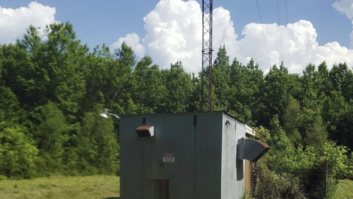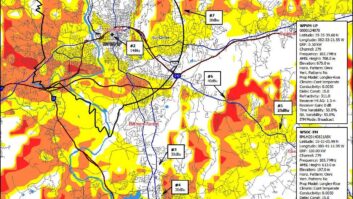To some in radio, activity in the news department may seem akin to that of a local fire company.
On the surface, it seems nothing happens except for routine newscasts and maybe a public safety scanner squawking in the background. Then an alarm goes off and the quiet newsroom becomes a blur of activity, which becomes yet more frenetic when one or two people are trying to do the work of five or more reporters and producers. At stations without dedicated news departments, perhaps the staff improvises, learning on the fly.
Essentially that’s what happened in Binghamton, N.Y., on the morning of April 3 when a “shots fired” call to the police gave stations their first indication of a tragedy that had just taken the lives of 13 victims, wounded others and ended in the death of the gunman.
RW spoke to the staffs of several stations to learn how they responded.
Citadel station WNBF(AM) is the market’s news/talk station, with a seven-day news operation headed by veteran news director Bob Joseph.

The shootings happened at the American Civic Association, an immigrant services center. He heard the scanner traffic that morning and broke into the local talk program with a short update. Then talk show producer and morning anchor Kathy Whyte and Joseph started to work the phones.
Joseph made contact with Binghamton Mayor Matthew Ryan and was able to get him on the phone for a live report at 11:03 a.m., about a half hour after the first scanner report of the shooting at an immigration services center. Mayor Ryan was twice again able to talk with WNBF until he became more involved in events and would not be available until a press briefing later that day.
Updates and expanded reporting continued. Other coverage was provided by WNBF Program Director Roger Neel; he’d been at a meeting and was diverted to the scene.
Joseph received more calls. One was from a person who’d been in an office building across from the American Civic Association and provided eyewitness on-air descriptions of events. Two calls were from reliable public safety sources, who independently — but on condition of anonymity — confirmed to Joseph the discovery of 13 bodies plus that of the shooter.
Those details were reported first on WNBF and would be confirmed hours later at a formal media briefing with New York Governor David Patterson, the mayor and Binghamton Police Chief Joseph Zikuski.
Joseph said, “For me, having to report that 12 or 13 people were dead … to utter those words was the most unpleasant task I’ve had to do.”
He was not only working the phones to discover facts; Joseph had to field media inquiries from ABC Radio, with which it is affiliated, and other media outlets around the world, while still reporting not just for WNBF but for other stations in the Citadel Binghamton cluster. A lot of calls from other outlets went unanswered because Joseph gave priority to WNBF’s listeners.
As the day progressed, WNBF broke its news/talk format to provide continuous coverage with a lead-in to the news briefing and the briefing itself; then Joseph opened the phone lines for what he described as a “conversation which seemed to lay groundwork for a healing process.
“We did what had to be done,” he said, summing up the station’s handling of the events, “and I think we struck the right balance of providing the accurate real-time coverage of a developing story to our listeners and also providing as many facts as possible to the national media.
“Although it would have been nice to have the same staffing levels that we did five or 10 years ago, in the absence of more people, we did extraordinarily well.”
Clear Channel has a six-station cluster in the market; its closest staffed radio newsroom is in Syracuse.
Operations Manager Jim Free says his cluster (two AM, four FM) broke format with news updates every 15 minutes. A promotions person became the on-site reporter, sending cell phone updates to Free, who assumed the studio anchor role, until Clear Channel sent an anchor from Syracuse to report from the scene.
Those reports were sent to the Syracuse newsroom and retransmitted to any station in any market that asked for them. When the afternoon media briefing was held, it was carried live on the two AMs, WENE and WINR, and cross-promoted on the four FM stations.
GM Broadcasting’s WLTB(FM) did not break format per se but took phone calls from listeners telling them what was going on. A staff member was reporting via cell phone from the scene but was asked to leave by police, along with others at the scene. Emergency service personnel asked the station to continue to broadcast street closure information.
Public radio WSKG(FM) and sister station WSQX(FM) ran Associated Press updates as the day progressed and broadcast “All Things Considered” one hour earlier on both stations.
Producer Bill Jaker assisted NPR with a report and produced local reports for the “All Things Considered” news block. WSKG also would preempt a program the following Tuesday to air a community conversation with religious leaders and psychologists designed to help listeners deal with the tragedy.
Equinox Broadcasting’s WCDW(FM) and WRRQ(FM) cut in to regular programs with special reports. Morning show producer/host Justin Case-McGregor told Radio World that station staffers were able to report using a Celljack FJ500 from the downtown area before local officials asked that people stay off cell phones. Off-shift air staff went to the scene and reported back to the air personality on duty.
Radigan Broadcasting’s WEBO(AM) in nearby Owego, N.Y., joined the coverage as well.
Binghamton University’s WHRW(FM) was on a semester break when the news department received a tip that a shooting had occurred.
General Manager Mike Saltzman said that even though half the station staff had left for break, News Director Robert Glass and two other reporters made their way to the scene.
Saltzman said the events were a big enough story to preempt music programming. Although WHRW did not broadcast the press briefing, the station covered the story from an on- and off-campus perspective in its traditional afternoon public affairs block from 4 to 7 p.m.
Police eventually reported that Jiverly Wong, a 41-year-old Vietnamese immigrant from an ethnic Chinese family, had shot the victims before turning his gun on himself, according to CNN.
Radio stations continued to cover and discuss after the last ambulance departed the scene that Friday evening. The next morning, Equinox’s Case-McGregor opened the phone lines so listeners could share their feelings and wishes.
“I was running on pure adrenaline (that day) and it was the next day on my show that it sank in, reality hit. I was pretty sure I knew three of those who lost their lives. It wasn’t just 14 people dead off the newswire to cover; this was 14 of our own, in basically our backyards.”
An interfaith memorial service for the victims was held Sunday, and hundreds took part in a candlelight vigil.
Bob Joseph concluded: “You don’t take any kind of satisfaction in having to report this (kind of story).”
Paul Kaminski is news director for the Motor Sports Radio Network; a contributor for CBS News, Radio; and a Radio World contributor and its “Radio Road Warrior” columnist.




